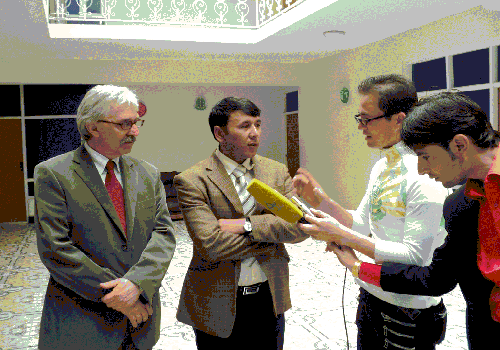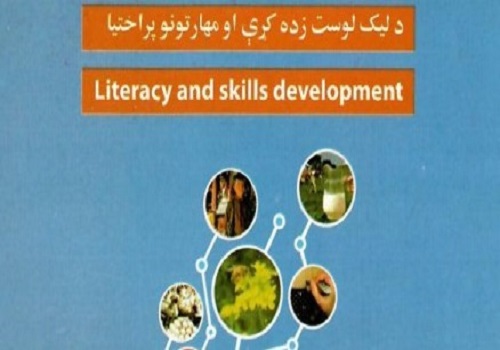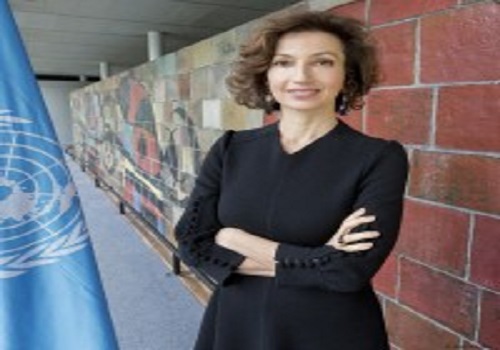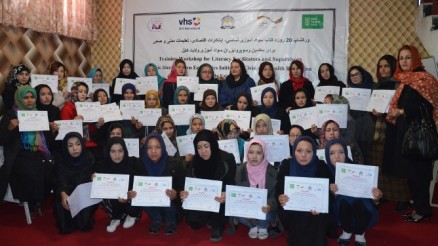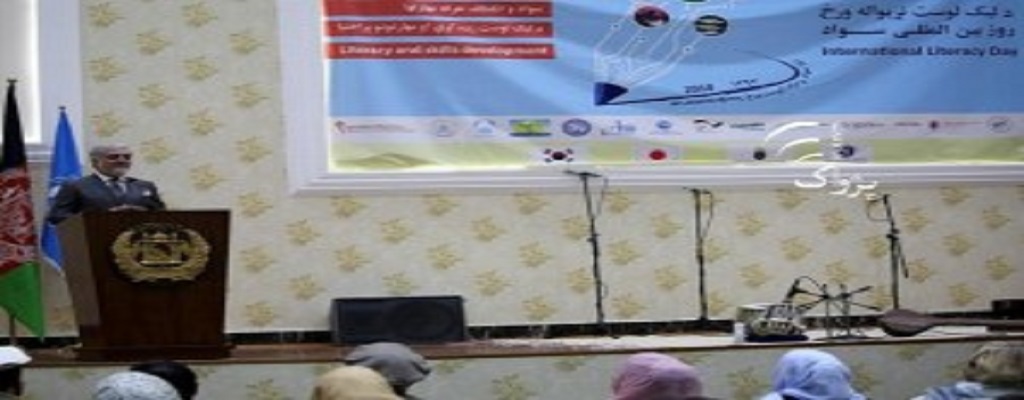
Literacy Day 2018
Key stakeholders, literacy facilitators, trainers, women organizations, national and international promoters of literacy education celebrated the ‘International Literacy Day’ at the Chief Executive Meeting Hall in Kabul on September 4, 2018. H.E. Dr. Mohammad Mirwais Balki opened the gathering.
Dr. Abdullah Abdullah, Chief Executive of the Islamic Republic of Afghanistan, an advocator of literacy education programs since many years, appreciated the efforts of all stakeholders to reduce illiteracy among men and women. He calls to volunteer “each one should teach one”. H.E. Mitsuji Suzuka, the Ambassador of Japan, promised to fund new literacy programs. Patricia Mac Philips from UNESCO Kabul presented the literacy day message of Director General, Audrey Azoulay.
Sweden, a key supporter of innovative literacy education programs in Afghanistan, worked hard to enlarge the access to literacy education for young and adult Afghans, especially in rural and hard to reach areas, jointly in partnership with UNESCO, the Ministry of Education and other important donors, including Japan, Finland and South Korea.
In his persuasive speech the Swedish Ambassador, H.E. Tobias Thyberg, underlined that “despite the positive and admirable strides made in education throughout the past decade, adult literacy education has been one of the most neglected areas of intervention throughout the country. There remain at least 11 million Afghans above age 15, suffering from lack or low levels of reading, writing and numeracy skills. Stark variations in the gender parity in literacy are evident across the country. Female literacy levels are on average 12% while male literacy rates average about 40%.”
He compared that “if literacy would be a health issue, this would be a pandemic. But fortunately, it is a solvable problem. Illiteracy is not an incurable disease. And as vaccines help to eliminate and stop the spread of diseases, literacy education can help to stop the spread of hunger, poverty and violence. No single factor can increase a person’s chances of earning a livelihood and being healthy as much as the ability to read, write and compute.”
He pointed out that “all education is important. But reading is the very foundation that all other essential skills build on. That is why few forces are as transformative as literacy education.”
H.E., the Ambassador stated that recent data present the full dimension of the problem. “ In rural areas where some 74 per cent of all Afghans reside, the situation is acute: an estimated 90 per cent of women and 63 percent of men cannot read, write or compute. These women and men, boys and girls, on the edges of the global village, receive none of the benefits of globalization but suffer all its costs. They are more vulnerable to ill heath, exploitation and human rights abuse. They are more likely to be unemployed, and to be paid less if they do find work. Unable to read or write, they are held back from their full potential, and whole communities are locked into vicious cycles of poverty that create the conditions for violence and strife.”
Ambassador H.E. Tobias Thyberg made it very clear that literacy education is “a fundamental human right. People who read learn two things: first that reading is worthwhile and second that they are worthwhile. It is a question of human dignity.” And “an investment in the intellectual development of Afghans is not a luxury–it is essential for everything Afghanistan aims to achieve: from economic growth to peace.”
Finally he concluded with a call for sustainable action: “Illiteracy is synonymous with exclusion and poverty. We must turn this around. This is the promise of the Agenda 2030, which sets forth a new global vision of prosperity, sustainability and peace. Among its 17 clear goals is to “ensure quality education and lifelong learning for all.”
